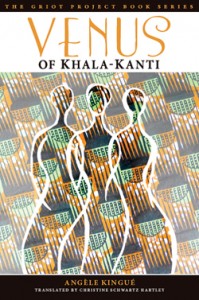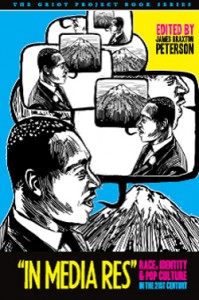As February, the month of love, comes to a close, I thought it appropriate to reflect on another commemoration for which it is known. Since 1976, the month of February has been designated by every U.S. President as Black History Month. It coincides with the birthdays of both Abraham Lincoln and Frederick Douglas, as well as the founding of the NAACP on February 12, 1909. Lincoln and Douglas were both prominent abolitionists—Douglas an escaped slave as well as strong author, orator, and activist for anti-slavery during the 1800s, and Lincoln abolishing slavery with the Emancipation Proclamation in 1863. But this month celebrates more than just the extinction of slavery. It is a recognition of all of Black History’s significant moments, leaders, activists, and cultural identities as well.
The Griot Project Book Series here at Bucknell University Press also seeks to celebrate African American culture, exploring the aesthetic, artistic and cultural products and intellectual currents of historical and contemporary African America and of the African diaspora. Our newest additions to the series in our partnership with the Griot Institute for Africana Studies are James Braxton Peterson’s In Media Res: Race, Identity and Pop Culture in the 21st Century and Angèle Kingué’s Venus of Khala-Kanti.
In Media Res, edited by James Peterson, is a manifold collection that reflects the intersectional qualities of university programming in the twenty-first century. Taking race, gender, and popular culture as its central thematic subjects, the volume collects academic essays, speeches, poems, and creative works that critically engage a wide range of issues, including American imperialism, racial and gender discrimination, the globalization of culture, and the limitations of our new multimedia world. This diverse assortment of works by scholars, activists, and artists models the complex ways that we must engage university students, faculty, staff, and administration in a moment where so many of us are confounded by the “in medias res” nature of our interface with the world in the current moment. Featuring contributions from Imani Perry, Michael Eric Dyson, Suheir Hammad, John Jennings, and Adam Mansbach, In Media Res is a primer for academic inquiry into popular culture; American studies; critical media literacy; women, gender, and sexuality studies; and Africana studies.
Venus of Khala-Kanti is a tale of life-altering loss and mystical recovery. Set in an imaginary West African village that becomes a charming cul-de-sac, the unintended consequence of a national roadwork project gone awry, the story follows characters drawn with humor, irony, and empathy. The heart of the story beats with the laughter and tears of three women. Having faced incredible hardship, they come together to build their lives anew, armed with the age-old spirit of human resilience, understanding, and tenderness. Tapping into the very soil of Khala-Kanti, Bella, Assumta, and Clarisse construct spaces, both internal and external, where they and others can rejuvenate their bodies, minds, and spirits. They build the Good Hope Center, which embraces both the physical and the mystical landscape of the story. The Center fuels the restoration and growth of the village’s inhabitants, and offers sanctuary for those who visit and those who stay.
So as the month of love comes to a close, think about its significance as Black History Month too! Expand that love to engulf the dynamic past and rich culture of the African American. Happy February! Happy Black History Month!
Learn more about the Griot Project Book Series here: http://www.bucknell.edu/script/upress/series.asp?id=55
–Alana Jajko, 2014-15 Cynthia Fell Intern
